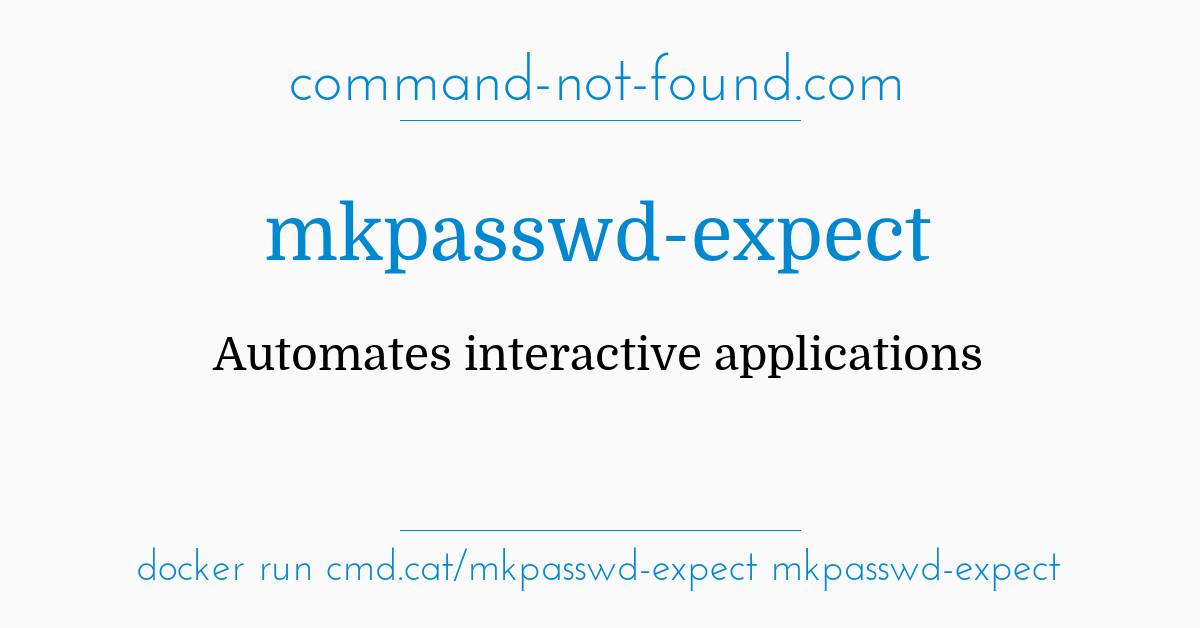Mkpasswd


An interesting open source project is Expect. It's a tool that can be used to automate interactive applications.
You can download the RPM for Expect can be downloaded from http://www.perzl.org/aix/index.php?n=Main.Expect, and the home page for Expect is http://www.nist.gov/el/msid/expect.cfm.
A very interesting tool that is part of the Expect RPM is 'mkpasswd'. It is a little Tcl script that uses Expect to work with the passwd program to generate a random password and set it immediately. A somewhat adjusted version of 'mkpasswd' can be downloaded here. The adjusted version of mkpasswd will generate a random password for a user, with a length of 8 characters (the maximum password length by default for AIX), if you run for example:
When running mkpasswd from a Windows or Mac console login, the hash will be placed in the clipboard so you can immediately paste it into the AuthFile. If you are running mkpasswd remotely, such as via SSH, make sure that you select all 80 characters when copying it. Mkpasswd does not change your AuthFile. Mkpasswd(1) - Linux man page Name mkpasswd - generate new password, optionally apply it to a user Synopsis mkpasswd args user Introduction mkpasswd generates passwords and can apply them automatically to users. Mkpasswd is based on the code from Chapter 23 of the O'Reilly book 'Exploring Expect'.
Install mkpasswd command on any operating system. Whois intelligent WHOIS client. This package provides a commandline client for the WHOIS (RFC 3912) protocol, which queries online servers for information such as contact details for domains and IP address assignments. Mkpasswd encrypts the given password with the crypt(3) libc function using the given salt. Options-S, -salt=STRING. Use the STRING as salt. It must not contain prefixes such as $1$.-R, -rounds=NUMBER. Use NUMBER rounds. This argument is ignored if the method chosen does not support variable rounds. For the OpenBSD Blowfish method this is the.
 To see the interactive work performed by Expect for mkpasswd, use the -v option: By using mkpasswd, you'll never have to come up with a random password yourself again, and it will prevent Unix system admins from assigning new passwords to accounts that are easily guessible, such as 'changeme', or 'abc1234'.
To see the interactive work performed by Expect for mkpasswd, use the -v option: By using mkpasswd, you'll never have to come up with a random password yourself again, and it will prevent Unix system admins from assigning new passwords to accounts that are easily guessible, such as 'changeme', or 'abc1234'. 
Now, what if you would want to let 'other' users (non-root users) to run this utility, and at the same time prevent them from resetting the password of user root?
Let's say you want user pete to be able to reset other user's passwords. Add the following entries to the /etc/sudoers file by running visudo: This will allow pete to run the /usr/local/bin/mkpasswd utility, which he can use to reset passwords.
First, to check what he can run, use the 'sudo -l' command: Then, an attempt, using pete's account, to reset another user's password (which is successful): Then another attempt, to reset the root password (which fails):
Mkpasswd Linux
If you found this useful, here's more on the same topic(s) in our blog:Mkpasswd Salt
Interested in learning more?